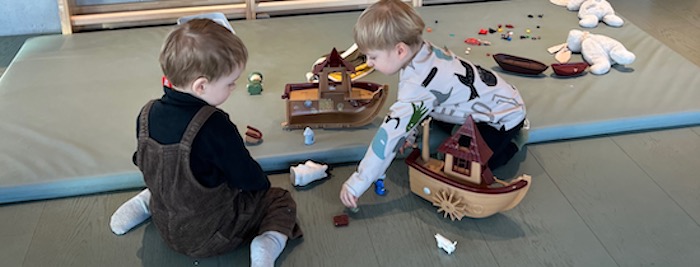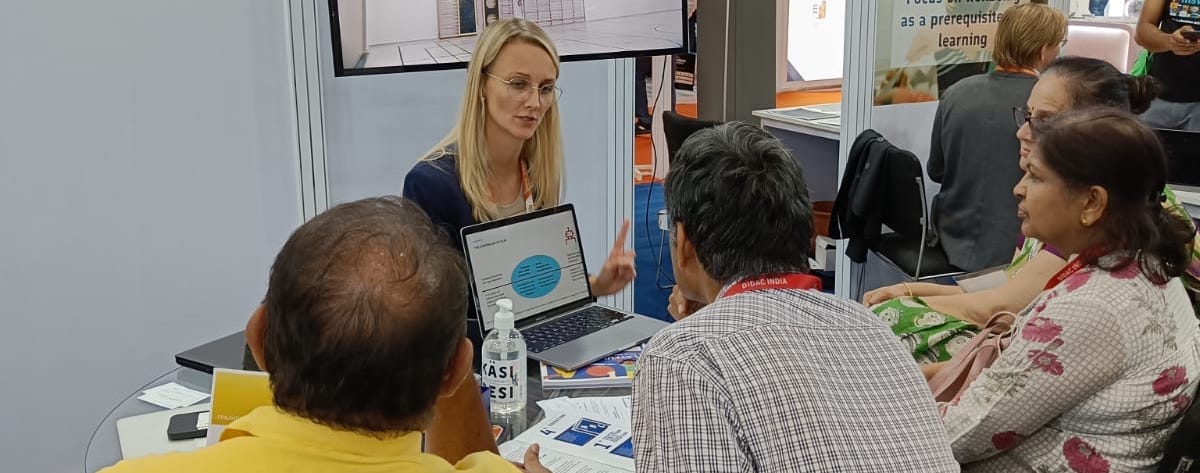Children learn by playing in solitary, in parallel, and in a group.

Playing is the underpinning theme in the Finnish curriculum for early childhood education and care. In ECEC, children get to play every day. They play solitary, in parallel, and in a group. An operating culture that encourages children to play recognizes its significance to children’s well-being and learning. Playing is the main channel through which children express their emotions and an important source of well-being.
Initially, playing is about contact and interaction between an adult and a child. After this, the child begins to show interest in the surrounding world, and playing is targeted at objects and their purposes. During these early stages of play, playing is usually solitary or parallel. Solitary and parallel play gradually change into collaborative play, allowing children to develop interaction and different roles within a group.
The community encourages everyone to be resourceful, use their imagination, express themselves and be creative. Playing allows children to interact with one another. The staff help children join and ensure that all the children are able to be active participants in their peer groups.
What is the role of the Group's Learning Plan?
In the previous two blog posts, we discussed the whole Center's Curriculum and then the Child's Learning Plan. The Group's Learning Plan complements these to strengthen the group level. The Group's Learning Plan has several important themes that help your planning process.
The Group's Learning Plan is a tool to support the process of pedagogical planning and to assess children's learning and overall educational work with the group and with your team.
Download the Group Learning Plan template from Kindiedays!
The Group's Learning Plan is drafted at the beginning of the academic year, but it can and should be assessed and modified regularly with the staff. The Group's Learning Plan includes information about the specific children of the group, so each plan is valid only for one academic year.
The Group's Learning Plan should include information about the group's working methods, educators’ strengths, and the individual qualities of the children.
With your team, discuss the following areas:

.png)
.png)
.png)

